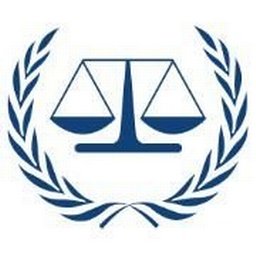A roster of suitable candidates may be established for this post as a result of this selection process for fixed-term appointments against both established posts and positions funded by general temporary assistance (GTA).
Organisational Context
The Victims and Witnesses Section (VWS) organisationally belongs to the Division of External Operations in the Registry. It provides protective measures, security arrangements, counselling and other appropriate assistance to witnesses and victims who appear before the Court and to others who are also at risk on account of testimony given by such witnesses. The Section may advise the Prosecutor and the Court on appropriate protective measures, security arrangements, counselling and assistance.
The Section is responsible for ensuring that the witnesses appear in the Court appropriately protected, supported and as scheduled by the Chambers. Furthermore, it is responsible for the management of the ICC Protection Programme (ICCPP) and may cooperate with States, intergovernmental and non-governmental organisations in providing any of the protection and support measures stipulated by the Statute.
Duties and Responsibilities
Within the Victims and Witnesses Section in the Division of External Operations, the Associate Analyst will assist the VWS Services Unit in performing the following duties:
- Monitor and review security situations in ICC areas of operation, with a focus on security issues related to victims and witnesses;
- Collect and securely register information;
- Review confidential documents and redact sensitive information;
- Translate confidential documents or provide interpretation;
- Draft reports and make presentations;
- Provide analytical support to the Senior Managers and Team Leaders in the absence of the Analyst;
- Maintains confidentiality at all times, respects the interests of the witness and acts impartially when cooperating with all parties;
- Perform other duties as instructed by the Analyst and the Senior Manager;
Essential Qualifications
Education:
Advanced University degree in political science, international relations, criminology, security or other relevant studies. A first-level university degree, in combination with two additional years of qualifying experience is accepted in lieu of the advanced university degree. Knowledge of analysis or intelligence (related to information) techniques is an asset.
Experience:
A minimum of two years of experience (four years with a first level university degree) in analytical activities, preferably with a special focus on complex, large-scale situations.
International experience would be an asset.
Knowledge, skills and abilities:
- Analytical skills, logical thinking, strong reasoning skills, including ability to understand complex scenarios, to handle a vast amount of information as well as conflicting information, and to identify source biases.
- Advanced computer skills, including the ability to operate efficiently databases, and/or search engines and/or analytical software.
- Strong reasoning skills, including ability to understand complex scenarios, to handle a vast amount of information as well as conflicting information, and to identify source biases;
- Excellent research skills;
- Very good drafting skills and ability to prepare analytical reports;
- Very good presentation skills and ability to logically defend chosen positions;
- Flexibility and ability to work effectively and constructively in teams;
- Ability to work under time constraint;
- Ability to keep strict standards of confidentiality;
- Professional integrity.
- Experience of working in conflict environment would be an asset;
- Experience in protection and/or situational and individual threat and risk assessment process would be an asset;
- Interview skills would be an asset.
Knowledge of languages:
Proficiency in one of the working languages of the Court, French or English, is required. Working knowledge of the other is desirable. Advanced knowledge in Arabic is highly desirable. Knowledge of another official language of the Court (Arabic, Chinese, Russian and Spanish) is an asset.
Note: The successful applicant must enter into a confidentiality agreement with the Victims and Witnesses Section.
- Acts consistently in accordance with the mission and values of the Organisation;
- Maintains confidentiality, acts with integrity and shows respect for diversity;
- Shows commitment to the organisation;
- Presents a positive image of the organisation during external discussions.
- Applies professional and technical expertise;
- Keeps abreast of organisational issues;
- Produces workable solutions to a range of problems.
- Listens, consults and communicates proactively;
- Handles disagreements with tact and diplomacy;
- Recognises and rewards the contribution of others.
- Identifies development strategies needed to achieve work and career goals and makes use of developmental or training opportunities;
- Learns from successes and failures;
- Seeks feedback and gives feedback to others to increase organisational effectiveness;
- Seeks opportunities for improvement of work;
- Has an open mind and contributes to innovation.
- Adapts to changing circumstances;
- Deals with ambiguity, making positive use of the opportunities it presents;
- Plans activities and projects well in advance and takes account of possible changing circumstances;
- Manages time effectively.
- Expresses opinions, information and key points of an argument clearly;
- Handles contacts with diplomacy and tact;
- Communicates in a transparent and open way with internal and external contacts while complying with
- Accepts and tackles demanding goals with enthusiasm;
- Keeps to agreements with others;
- Focuses on client needs;
- Takes responsibility for actions, projects and people;
- Monitors and maintains quality and productivity.
General Information
Candidates appointed to posts at a P-5 grade or in the Director category are subject to a maximum aggregate length of service of seven years. This is pursuant to a decision of the Assembly of States Parties (ASP Resolution ICC-ASP/23/Res.2) to implement a tenure policy at the Court as of 1 January 2025.
- The selected candidate will be subject to a Personnel Security Clearance (PSC) process in accordance with ICC policy. The PSC process will include but will not be limited to, verification of the information provided in the personal history form and a criminal record check.
- Applicants may check the status of vacancies on ICC E-Recruitment web-site.
- Post to be filled by a national of a State Party to the ICC Statute, or of a State which has signed and is engaged in the ratification process or which is engaged in the accession process. This is pursuant to a decision of the Assembly of States Parties (ASP Resolution ICC-ASP/23/Res.3) to introduce a moratorium on the recruitment by the ICC of staff of non-States Parties’ nationality.
- In accordance with the Rome Statute, the ICC aims to achieve fair representation of women and men for all positions, representation of the principal legal systems of the world for legal positions, and equitable geographical representation for positions in the professional category.
- Applications from female candidates are particularly encouraged.
- The International Criminal Court applies the Inter-Organization Mobility Accord and can support secondment of staff from organizations of the United Nations Common System.



